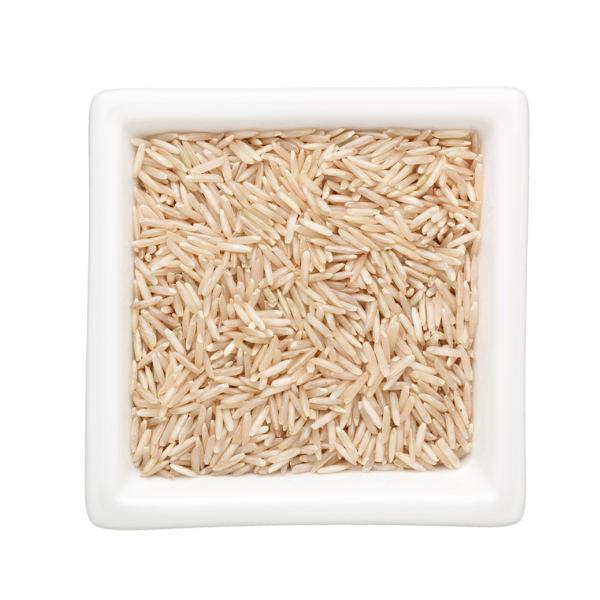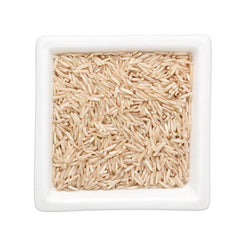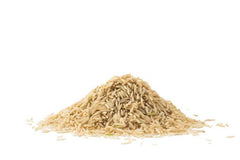





Description
xOur organically grown brown basmati rice is a nutritious, flavorful grain that’s easy to prepare and ideal for a variety of recipes. With its unique nutty flavor, floral aroma, and fluffy texture, brown basmati rice is the perfect match for Asian and Indian dishes like curries, biryani, and pilaf. It also works beautifully in rice puddings, side dishes, and beyond.
Why Choose Brown Basmati Rice?
Brown basmati rice is a long-grain variety, known for its slender shape and distinct texture. Compared to other types of rice, it’s lower in arsenic, making it a healthier option for regular consumption. Packed with essential nutrients, it’s an excellent choice for those seeking to meet their dietary requirements with wholesome, minimally processed food.
Nutritional Profile
Brown basmati rice offers an impressive array of micronutrients, including:
- Folate, Thiamine, Niacin, Vitamin B6
- Selenium, Copper, Iron, Zinc
- Phosphorus, Magnesium
A single cup of cooked basmati rice (163g) provides:
- Protein: 4.4g
- Carbohydrates: 45.6g
- Fat: 0.5g
- Calories: 210
Health Benefits of Brown Basmati Rice
This flavorful rice is more than just a delicious addition to your meals—it also comes with a host of potential health benefits:
1. Aids in Weight Management
Brown basmati rice contains amylose, a resistant starch that slows digestion. This helps keep you feeling fuller for longer, which may support weight loss efforts.
2. Supports Blood Sugar Management
Thanks to its low to medium glycemic index (50–58), basmati rice digests more slowly, promoting better blood sugar control compared to other types of rice.
3. Lower Arsenic Content
Basmati rice contains significantly lower levels of arsenic—a harmful heavy metal—than other rice varieties. This makes it a safer and healthier option for frequent rice eaters.
4. High in Essential Nutrients
Rich in iron, folic acid, thiamine, and niacin, brown basmati rice helps increase your intake of key vitamins and minerals, supporting overall health and well-being.
How to Cook Perfect Brown Basmati Rice
Follow these simple steps for fluffy, flavorful rice every time:
- Rinse the rice thoroughly under cold water until it runs clear.
- Combine 1 cup of rice with 1.5 cups of water in a saucepan.
- Bring to a boil over medium-high heat with the lid off.
- Reduce the heat to low, cover the pan, and let it simmer for 12 minutes.
- Remove from heat and allow the rice to rest, covered, for 10 minutes.
- Fluff with a fork before serving.
Why Brown Basmati Rice Stands Out
Whether you’re creating a hearty biryani, an authentic curry, or a simple side dish, organic brown basmati rice is a nutritious and delicious choice. Its lower arsenic content, diabetes-friendly properties, and rich nutritional profile make it a standout grain for health-conscious individuals.
Enjoy the aromatic, flavorful goodness of brown basmati rice as part of a balanced and satisfying meal!
- Choosing a selection results in a full page refresh.


